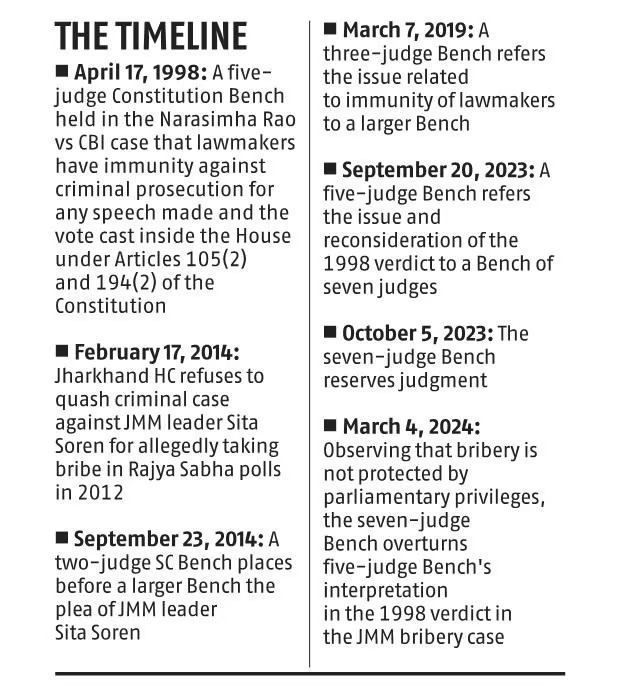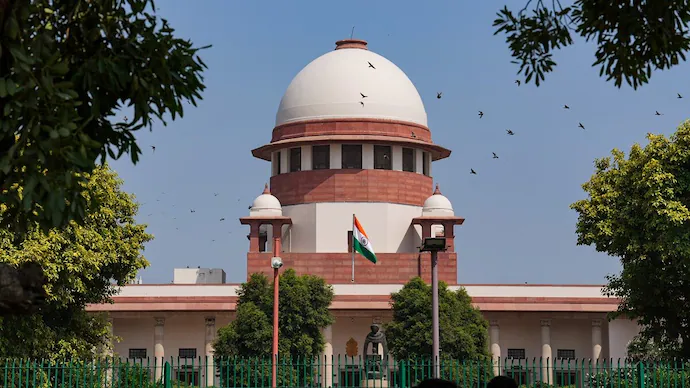The 1998 ruling by the court’s five-judge bench in the Jharkhand Mukti Morcha (JMM) bribery case, which provided MPs immunity under Articles 105 and 194 of the Constitution, is overturned by the historic unanimous verdict.
The rights and powers accorded to members of legislative assemblies and parliament are covered in these articles. In 1993, there were rumours that five JMM MPs had taken bribes to support the PV Narasimha Rao administration against a motion of no-confidence.

Source: Business Standard
The court has correctly noted that the cornerstone of Indian parliamentary democracy is being undermined by the corruption and bribery of legislators, notwithstanding PM Narendra Modi’s claims that the ruling will guarantee clean politics and strengthen public confidence in the system.
The ruling was rendered several weeks after the Supreme Court struck down the electoral bond program, citing violations of the fundamental rights to knowledge and freedom of speech and expression. The program, whose stated goal was to purge political finance, has been dogged from the start by an obvious lack of openness.
Source: NDTV
The Supreme Court’s efforts to purge the Augean stables of Indian politics are commendable. The public expects their MPs to represent them in the House on matters of public interest, not to go out of business. The 1998 decision was erroneous because it allowed dishonest politicians to abuse parliamentary privileges in order to protect their own interests. The most recent ruling is a big step in the right direction to stop the widespread use of money power in horse-trading and other legislative malpractices.
What do you think about this? Comment below.

